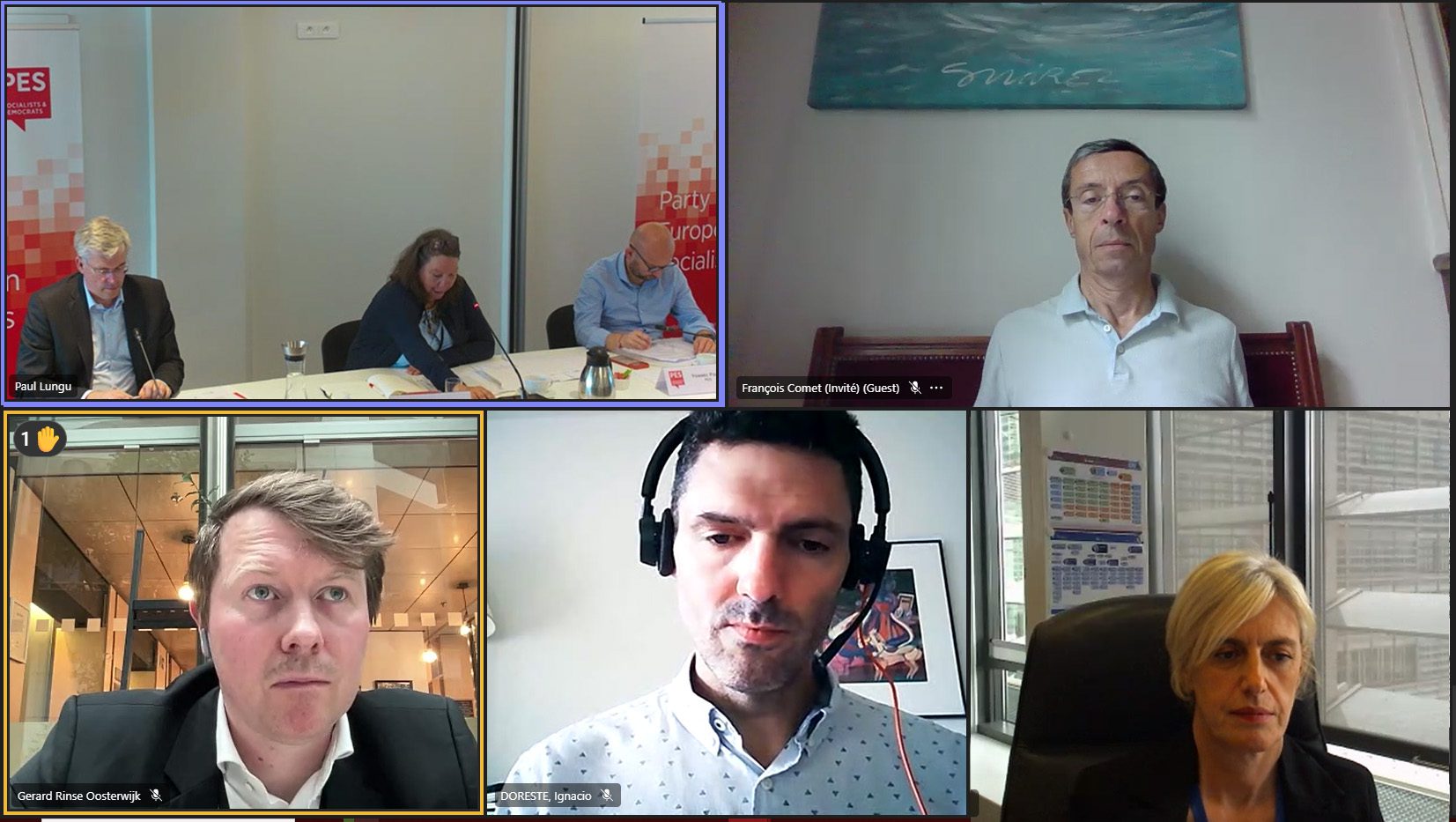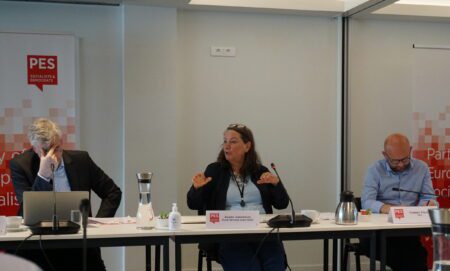The answer to labour shortages is better working conditions, equal access to the labour market for everyone, and adequate training and learning opportunities. This was the message as members of Social Europe Network (SEN) of the Party of European Socialists (PES) met online today.
Representatives of PES member parties and organisations, members of the European Parliament, NGOs and others met in hybrid format to discuss the labour market, platform work, public procurement, economic governance, public services and more.
Chair of the PES Social Europe Network, Agnes Jongerius, said:
“From proper rights for platform workers, to support for the long-term unemployed, and job creation through procurement, socialist are focused on improving life for working people.
“As we recover from pandemic, and as many citizens face a cost-of-living crisis, it is vital to invest in better working conditions, skilling and reskilling, and bringing inactive people in the labour market with high-quality jobs. That is how we meet labour market demands and improve life for citizens.”
Currently, European companies are reporting difficulties in finding qualified employees. At the same time, analysis by the European Trade Union Institute identifies difficult working conditions as a major reason for labour shortages. To strengthen the labour market, it is time to improve the situation for workers.
The PES SEN reiterated the call – made early this morning by PES EPSCO ministers – for an ambitious platform work directive, adopted during this mandate. There are 28 million platform workers in Europe and they deserve certainty and strong rights and protections.
The meeting held a further exchange on Local Employment Guarantees, also known as Zero long term unemployment zones. These initiatives – such as Territoires Zero Chômeur de Longue Durée in Paris – build on the idea that no one is unemployable and that creating quality jobs that serve the needs of long-term unemployed people and their local communities is actually less expensive than the social and economic cost of unemployment. In the European Parliament, S&D MEPs Agnes Jongerius and Aurore Laluq are working to secure a pilot project and study on the concept.
Building on campaigning already undertaken by the trade union movement, the meeting exchanged on the need to improve public procurement in the EU. In particular, public authorities need to use public procurement to create quality jobs, rather than accepting a race to the bottom.
The meeting exchanged on social investment in economic governance. Participants welcomed, as a good starting point, the development of a Social Convergence Framework in the European Semester. It will come into effect in 2024. On the economic governance review, the meeting welcomed the more credible debt reduction path – which should allow also better social investment – proposed by the European Commission in April. It is vital to promote public investment in common EU priority areas like the green and digital transition, but also social and defence objectives.
The Network reiterated the need – in line with principle 20 of the European Pillar of Social rights – to ensure all citizens have access to services and essential services. Recent crises – including coronavirus and rising cost of living – have highlighted significant issues in sectors such as energy, healthcare and social security.




